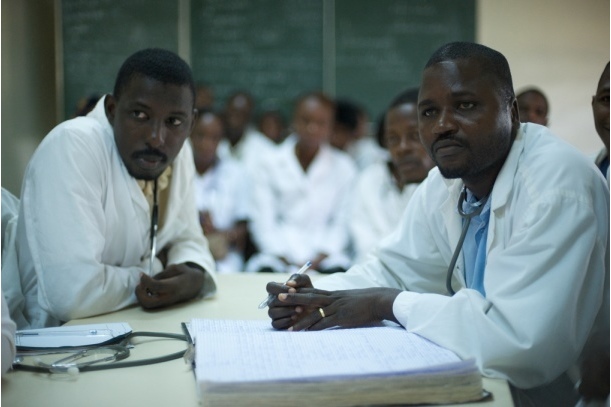Latest News
Ebola highlights toll of “brain drain” on SSA’s health system

News Highlight
- The Ebola epidemic in West Africa demonstrated the highly damaging impact of the "brain drain."
- WHO database indicates there were a total of 103 physicians in Liberia in 2004, but only 51 in 2008.
A recent research article by the multidisciplinary Open Access journal, PLOS ONE, “Monitoring Sub-Saharan African Physician Migration and Recruitment Post-Adoption of the WHO Code of Practice: Temporal and Geographic Patterns in the United States,” examined how the migration of physicians from sub-Saharan Africa (SSA) to the United States has led to a dire health-worker shortage in the region.
While this "brain drain" has been ongoing for decades, the Ebola epidemic in West Africa demonstrated its highly damaging impact, as affected nations struggled to respond to the epidemic with weakened health systems and a limited health workforce.
For example, WHO database indicates there were a total of 103 physicians in Liberia in 2004, but only 51 physicians in 2008, a 50.5% total physician loss within four years.
Compared to SSA countries, populous source countries with a tradition of medical migration like India, Pakistan, and the Philippines have much larger numbers of émigré physicians in doctor-receiving countries like the US, UK, Canada, and Australia. But, relative to the number of physicians remaining in the source countries, the SSA region as a whole has a much higher migration proportion, losing between 13.9% and 28% of its physicians.
While better conditions of service and high living standards inform the high rate of migration of physicians from SSA, place attachment, professional stability and relative comfort were identified as reasons why a doctor might remain in his or her home country.
Although African migrant physicians constitute 1.3% of the US physician workforce, the report also critiques the US policy of recruiting African health workers into the U.S. workforce when the United States has initiatives for health workforce training in Africa such as Nursing Education Partnership Initiative (NEPI), and the Medical Education Partnership Initiative (MEPI).
Related News
Latest Blogs
- Nigeria and the International Oil Pollution Compensation Fund
- Prospects of Islamic finance in upscaling off‑grid renewable solutions in Nigeria
- Social outcomes as the tail that wags climate action
- The case for due process in aviation regulatory enforcement
- AI solutions for improved crop production
Most Popular News
- NDIC pledges support towards financial system stability
- Artificial intelligence can help to reduce youth unemployment in Africa – ...
- ICRISAT launches 2025–2030 strategy to shape the future of agriculture
- Bank of Agriculture signs $1 billion financing programme
- WTO agreement on fisheries subsidies enters into force
- Cassona Global Imaging marks 3rd anniversary








